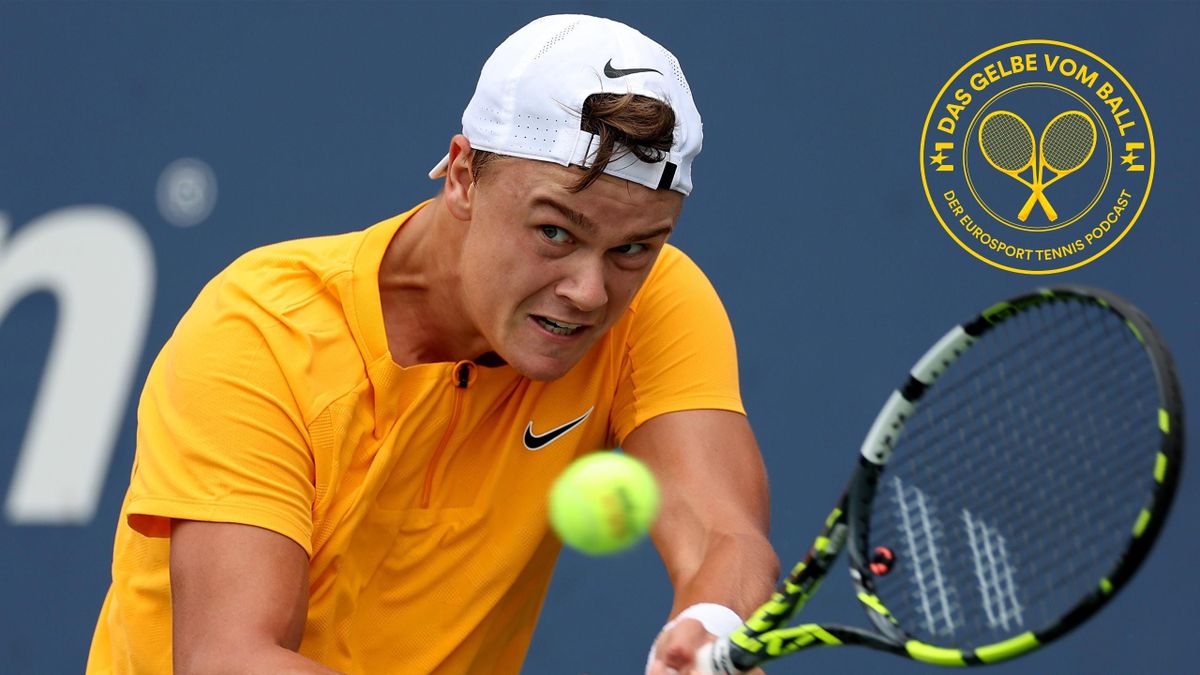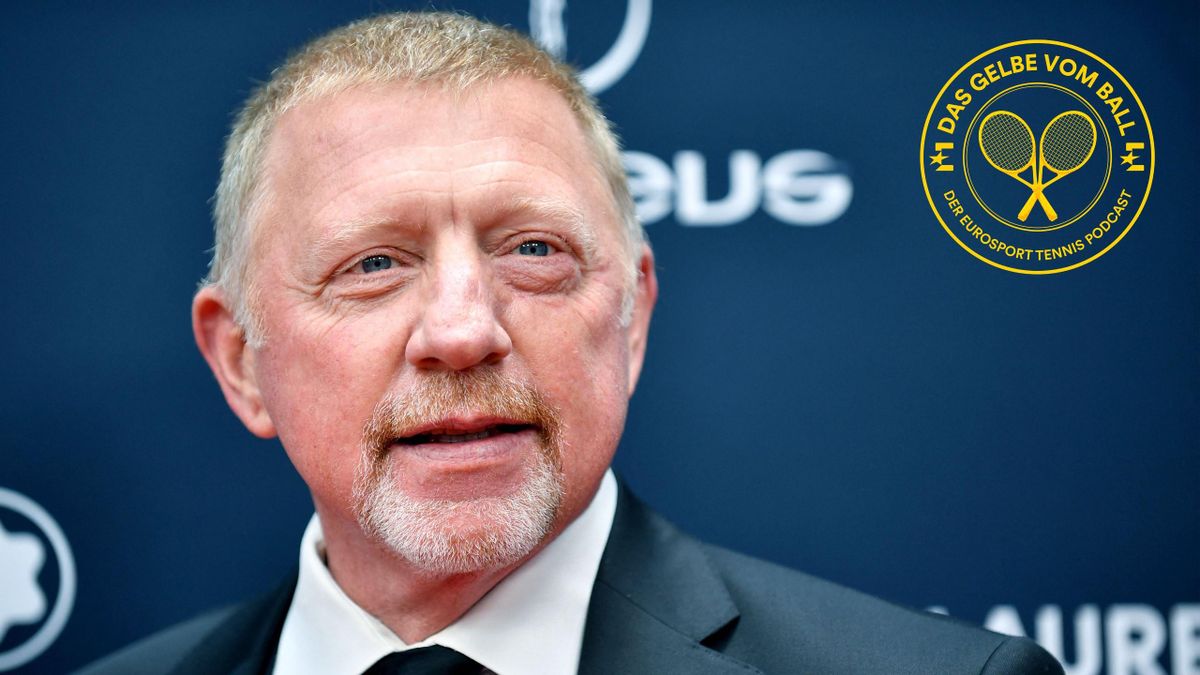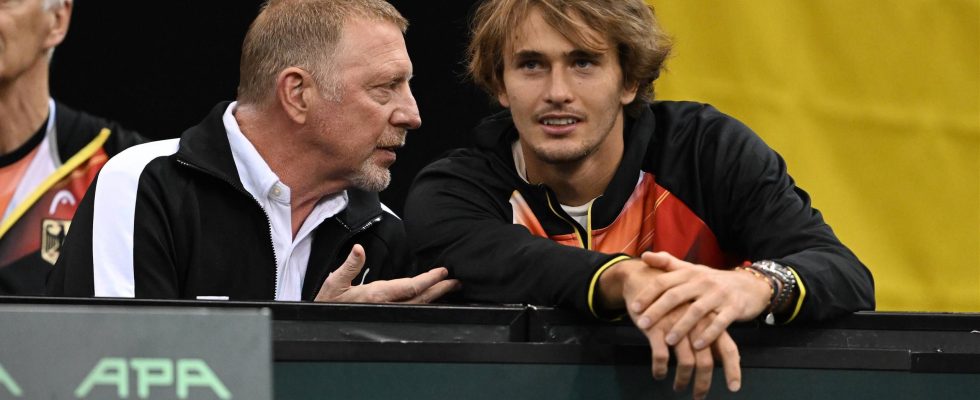Alexander Zverev is refreshingly honest when analyzing his matches. Especially in the event of failure, the German judges himself mercilessly; there is no room for excuses.
It was the second defeat at the start in a row for the 26-year-old, a week earlier he had quietly lost to the Russian Roman Safiullin (3:6, 1:6) at the Masters in Shanghai. Zverev last suffered two defeats in the first round in a row in February 2017 (!) – at the tender age of 19.
The Asian tour got off to an ideal start for Zverev: in Chengdu, China, he celebrated his second tournament victory of 2023 with a hard-fought three-set win against Safiullin. The following week he reached the semi-finals in Beijing, but had no chance against Daniil Medvedev 4:6, 3:6.
Listen now: The new podcast episode with Boris Becker
In his last three matches, Zverev won just 18 games, lost his serve six times and was unable to take advantage of a break chance himself. The form is completely gone, and the participation of the best eight players this season in the ATP Finals in Turin is far from a done deal.
Boris Becker justifies this with the strenuous journey that lasted several weeks in the Far East. “After a long season, it’s not easy psychologically to play for several weeks in Asia, there are different customs, it’s a different culture,” said Becker Eurosport podcast “The Yellow of the Ball”.
“After the third or fourth week – I’ve experienced this too – you can start to feel homesick. You then want to go back to Europe and sleep in your own bed again,” Becker continued.
Ultimately, however, Zverev has himself to blame for the dry spell due to the tournament planning.
Becker puts his finger in the wound: “You can’t play 25 tournaments every year. Sascha is also getting a little older. It’s not necessarily a physical thing, but rather a mental one. You can’t be fresh every week. You have to Find your priorities and then take a break. Breaks are part of training. You can only play your best tennis in a healthy body with a healthy mind and a healthy soul.”
Zverev fails at the start in Tokyo due to outsiders
Becker advises Zverev: “You have to distance yourself from time to time”
In Shanghai and Tokyo, Zverev appeared tired and unfocused. “You also have to take some distance, you can’t be in the locker room every week, in the players’ lounge, on some plane to the next tournament. That’s tiring. Then at some point you lose the inspiration and the desire to really enjoy being on the pitch “, says Becker.
Zverev has played 23 tournaments since the United Cup in Brisbane in January, plus an appearance in the Davis Cup against Switzerland in February with two individual matches. He canceled his start at the grass tournament in Stuttgart due to a minor thigh injury.
Next week Zverev has the Erste Bank Open in Vienna, followed by the last Masters tournament of the season in Paris.
So that he doesn’t have to rush from tournament to tournament in the fall, Zverev should rethink his tournament planning. “My advice would be to filter out the priorities of the year and say: ‘I want to play well at Wimbledon. What do I do about it, which grass tournaments do I play?’ The same applies to the clay court tournaments in Paris and the hard court season towards the US Open. Then in the fall you can see what you’re missing in order to be at the ATP finals,” explains Becker.

Becker about new protégé Rune: “A diamond in the rough”
Federer, Nadal, Djokovic – role models in tournament planning
Zverev could learn from superstars Roger Federer, Rafael Nadal and Nova Djokovic. “Tournament planning is an art,” Becker clarifies: “Here, too, you have to look at the big three and see how they still manage to play in the absolute world class in their mid-30s. They have a different tournament plan, a different training preparation and what they do “Other breaks – they also regenerate better. This way you can extend your career a little.”
The younger generation is getting in its own way in this regard. “I’m a bit worried about the younger players when they play every week. That can’t go well. You can’t always perform at your best every week. Then you lose the matches and your self-confidence. You also have to learn from the better ones ” Becker demands.
Especially in Zverev’s case, the six-time Grand Slam champion sees a careless waste of physical and psychological resources. “Sascha is simply world-class, he knows that now. He can assume that in well-prepared tournaments he will always make it to the quarter-finals, semi-finals or finals. But then you have to reward yourself and maybe take a little time off,” advises Becker .
In order to secure his starting place in Turin, where Zverev triumphed in 2021, he now needs good results in Vienna and Paris – or has to hope for mistakes from the competition. He is still number seven in the ranking, but his pursuers are catching up. There is no rest – for anyone who wants to go to Turin. Becker raises his index finger: “Anyone who thinks they’re already safe in Turin – stupid! – will have to work and tremble for another three weeks.”

Becker exclusively on the coaching job: That’s my plan with Rune

